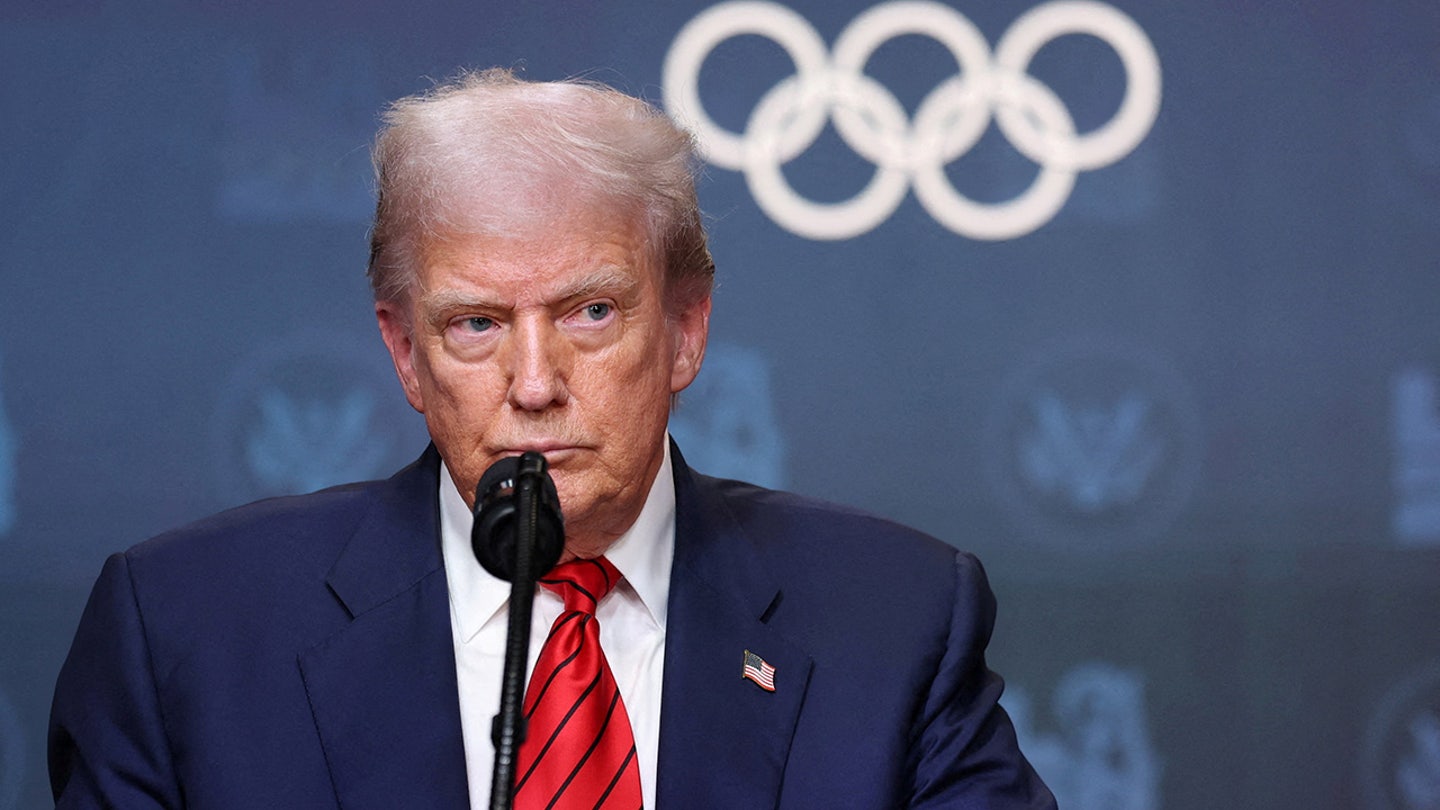
LSU women's basketball star questions governor's push for school to erect statue of Charlie Kirk
Entities mentioned:
- Flau'jae Johnson: Justice, Self-respect, Moral outrage
- Gov. Jeff Landry: Influence, Recognition, Righteousness
- Charlie Kirk: Legacy, Influence, Righteousness
- LSU: Unity, Recognition, Freedom
Article Assessment:
Credibility Score: 70/100
Bias Rating: 55/100 (Center)
Sentiment Score: 30/100
Authoritarianism Risk: 45/100 (Mixed/Neutral)
Bias Analysis:
The article presents both sides of the debate, quoting directly from key players. However, it leans slightly right by giving more context to Kirk's background and conservative event attendance.
Key metric: Campus Free Speech Index
Let me tell you something, folks - this is a HEATED MATCHUP between Team Free Speech and Team Social Justice! We've got a real CLASH OF TITANS here, with Gov. Landry making a bold offensive play by proposing a Charlie Kirk statue. But hold onto your hats, because LSU star Flau'jae Johnson is coming in hot with a DEFENSIVE SHUTDOWN! She's not just guarding the paint, she's guarding the entire campus against what she sees as a FOUL MOVE. This is a fourth-quarter nail-biter that could go into overtime, with the Campus Free Speech Index hanging in the balance. It's like we're watching a high-stakes game of political basketball, and both sides are leaving it ALL on the court!

US figure skater champion Alysa Liu opens up on being targeted by Chinese spying operation, FBI's protection
Entities mentioned:
- Alysa Liu: Determination, Competitive spirit, Enthusiasm
- Arthur Liu: Justice, Freedom, Security
- FBI: Duty, Security, Justice
- Chinese government: Control, Power, Influence
- Matthew Ziburis: Greed, Loyalty, Obligation
- USOPC: Competitive spirit, Unity, Professional pride
Article Assessment:
Credibility Score: 75/100
Bias Rating: 45/100 (Center)
Sentiment Score: 65/100
Authoritarianism Risk: 20/100 (Strongly Democratic)
Bias Analysis:
The article presents a balanced view of the situation, giving voice to multiple perspectives. While sympathetic to Liu and critical of Chinese actions, it maintains a neutral tone in reporting facts.
Key metric: Olympic Medal Count
Let me tell you something - this story is RIDICULOUS! We're talking about a young athlete who's not just facing competition on the ice, but in a high-stakes international game of cat and mouse! Alysa Liu stepped up to the plate with the determination of a true champion, refusing to let this curveball from the Chinese government knock her off her game. The FBI played outstanding defense, providing a rock-solid backline to keep Team USA's rising star safe. This is the kind of mental toughness that separates the contenders from the pretenders, folks! Liu's comeback is nothing short of a fourth-quarter miracle, shattering records and bringing home the gold for Team USA. I'm telling you right now, this is the kind of championship mentality that will have America dominating the scoreboard in Milano-Cortina!

White House responds after US Olympic team indicates it's looking into genetic tests to protect women's sports
Entities mentioned:
- United States Olympic & Paralympic Committee (USOPC): Competitive spirit, Fairness, Professional pride
- White House: Righteousness, Pride, Influence
- President Donald Trump: Determination, Power, Legacy
- International Olympic Committee (IOC): Fairness, Unity, Professional pride
Article Assessment:
Credibility Score: 75/100
Bias Rating: 65/100 (Lean Right)
Sentiment Score: 55/100
Authoritarianism Risk: 40/100 (Generally Democratic)
Bias Analysis:
The article leans right, focusing heavily on Trump's executive order and conservative viewpoints. While it includes some opposing perspectives, the framing and source selection favor a conservative stance on transgender athletes in sports.
Key metric: Olympic Medal Count
Let me tell you something, folks - this is a GAME-CHANGER in the world of sports! The USOPC is stepping up to the plate with a championship mentality, looking to level the playing field in women's athletics. They're not just talking the talk, they're walking the walk with genetic testing options. This is like bringing in instant replay to make sure every call is fair and square. The White House is cheering from the sidelines, backing Trump's executive order like it's the game-winning play. We're seeing a full-court press to protect the integrity of women's sports, and let me tell you, it's crunch time! The IOC is huddling up, ready to make some fourth-quarter moves to ensure fairness across the board. This isn't just about one race or one game - we're talking about the whole season, the whole legacy of women's athletics! It's a high-stakes match, and these players are leaving it all on the field!

NCAA delays rule change permitting college athletes to bet on professional sports
Entities mentioned:
- NCAA: Control, Professional pride, Security
- Division I Board: Wariness, Duty, Control
- Greg Sankey: Concern, Influence, Professional pride
- Charlie Baker: Control, Duty, Professional pride
- Roberta Page: Professional pride, Duty, Unity
Article Assessment:
Credibility Score: 85/100
Bias Rating: 50/100 (Center)
Sentiment Score: 40/100
Authoritarianism Risk: 35/100 (Generally Democratic)
Bias Analysis:
The article presents a balanced view of the NCAA's decision, including perspectives from multiple stakeholders. It doesn't appear to favor any particular side of the debate, maintaining a neutral stance.
Key metric: NCAA Sports Integrity Index
Let me tell you something - this story is RIDICULOUS! The NCAA is playing defense like it's the fourth quarter of the championship game, folks! They're delaying this rule change on betting like a coach calling a crucial timeout. It's a high-stakes game of cat and mouse between the NCAA and the gambling industry, and right now, the NCAA is trying to run out the clock. But make no mistake, this is just the first half. The real action is yet to come as college athletics faces its toughest opponent yet - the allure of easy money. This move by the NCAA is like putting in your second-string defense when you're facing Tom Brady - it might slow things down, but it's not going to stop the inevitable march down the field. I'm telling you right now, we're witnessing a pivotal moment in college sports history, and the NCAA needs to bring its A-game if it wants to maintain control of this rapidly changing landscape!

How to Watch 2025 World Series: Schedule, TV Channels, Streaming, Dates, Times
Entities mentioned:
- Los Angeles Dodgers: Competitive spirit, Pride, Legacy
- Toronto Blue Jays: Competitive spirit, Pride, Ambition
- FOX: Recognition, Influence, Professional pride
- MLB: Recognition, Legacy, Influence
Article Assessment:
Credibility Score: 85/100
Bias Rating: 50/100 (Center)
Sentiment Score: 70/100
Authoritarianism Risk: 15/100 (Strongly Democratic)
Bias Analysis:
The article presents a neutral, informative tone without favoring any particular team or platform. It focuses on providing factual information about viewing options and schedules.
Key metric: TV Viewership
Let me tell you something - this World Series matchup is going to be ELECTRIC! The Dodgers and Blue Jays are stepping up to the plate for what promises to be an epic showdown of titans! FOX is bringing its A-game, positioning itself as the exclusive broadcaster for this championship clash. This is the World Series, folks - the ultimate test of a team's mettle, where legends are born and dynasties are forged! With streaming options aplenty, fans won't miss a single pitch of this high-stakes battle. It's a whole new ballgame in the world of sports media, and FOX is swinging for the fences with this coverage strategy. The question is, will viewership numbers knock it out of the park or strike out looking? I'm telling you right now, all eyes will be on these ratings as closely as they'll be watching the action on the diamond!

Travis Kelce mimics Taylor Swift music video choreography after scoring historic touchdown
Entities mentioned:
- Travis Kelce: Pride, Recognition, Competitive spirit
- Taylor Swift: Influence, Recognition, Legacy
- Kansas City Chiefs: Competitive spirit, Pride, Legacy
- Patrick Mahomes: Competitive spirit, Recognition, Professional pride
Article Assessment:
Credibility Score: 75/100
Bias Rating: 45/100 (Center)
Sentiment Score: 75/100
Authoritarianism Risk: 20/100 (Strongly Democratic)
Bias Analysis:
The article presents a balanced view of the game and Kelce's performance. It doesn't lean heavily towards praising or criticizing any particular player or team.
Key metric: NFL Player Performance
Let me tell you something - this story is RIDICULOUS! Travis Kelce just stepped up to the plate and knocked it out of the park with a CHAMPIONSHIP-CALIBER performance! This tight end superstar isn't just playing football, he's REVOLUTIONIZING the game! Kelce's touchdown celebration, channeling his fiancée Taylor Swift's moves, shows he's not just a player, he's a SHOWMAN! This power couple is changing the game both on and off the field! The Chiefs are running a masterful offensive playbook, with Kelce as their secret weapon. He's not just catching passes, he's REWRITING THE RECORD BOOKS! Joining the elite 80+ touchdown club? That's Hall of Fame territory, folks! Kelce and Mahomes are the dynamic duo every team FEARS, and they're just warming up! This is the kind of fourth quarter magic that wins championships!

Pittsburgh coach Pat Narduzzi rips decision to allow NCAA athletes to bet on professional sports: 'Bad deal'
Entities mentioned:
- Pat Narduzzi: Righteousness, Moral outrage, Professional pride
- NCAA: Control, Influence, Self-preservation
- NCAA athletes: Ambition, Competitive spirit, Curiosity
Article Assessment:
Credibility Score: 75/100
Bias Rating: 55/100 (Center)
Sentiment Score: 30/100
Authoritarianism Risk: 35/100 (Generally Democratic)
Bias Analysis:
The article presents Narduzzi's perspective prominently, but also includes context about the NCAA's decision and recent gambling-related arrests. It maintains a relatively neutral stance while reporting on a controversial topic.
Key metric: NCAA Athlete Integrity
Let me tell you something - this story is RIDICULOUS! Coach Narduzzi is stepping up to the plate and throwing a FASTBALL right at the NCAA's decision to allow college athletes to bet on pro sports. It's like they've fumbled the ball on the one-yard line! This coach is showing true championship mentality, folks. He's calling an audible and trying to protect his team from the Hail Mary pass of gambling addiction. The NCAA might think they're making a touchdown move, but Narduzzi sees it as a major penalty that could send these young athletes spiraling into overtime with addiction. It's fourth and long for college sports integrity, and Narduzzi is the linebacker trying to make the game-saving tackle!

LSU women's basketball star questions gov's push for school to erect statue of Charlie Kirk
Entities mentioned:
- Flau'jae Johnson: Justice, Self-respect, Righteousness
- Gov. Jeff Landry: Power, Influence, Ambition
- Charlie Kirk: Legacy, Influence, Recognition
- LSU: Obligation, Professional pride, Unity
Article Assessment:
Credibility Score: 70/100
Bias Rating: 55/100 (Center)
Sentiment Score: 35/100
Authoritarianism Risk: 40/100 (Generally Democratic)
Bias Analysis:
The article presents both viewpoints, quoting directly from Johnson and Landry. However, it leans slightly right by giving more context to the conservative event and Kirk's background.
Key metric: Political Polarization Index
Let me tell you something, folks - this is a CLASH OF TITANS on the political playing field! We've got LSU basketball star Flau'jae Johnson coming off the bench with a POWER MOVE, challenging the governor's game plan like a true champion. Governor Landry is trying to run a statue play for Charlie Kirk, but Johnson's defense is ROCK SOLID. This is fourth quarter politics, and the stakes couldn't be higher! Johnson's not just dribbling around the issue - she's taking it straight to the hoop with a slam dunk statement on discrimination. Meanwhile, Landry's trying to control the court with his Turning Point USA event, but Johnson's not falling for any fake-outs. This is the kind of political athletics that keeps fans on the edge of their seats, folks! The real question is: who's got the championship mentality to come out on top in this freedom of speech showdown?

Kai Trump announces she will make LPGA debut next month: 'Been a dream of mine'
Entities mentioned:
- Kai Trump: Ambition, Competitive spirit, Determination
- Pelican Golf Club: Recognition, Influence, Professional pride
- LPGA: Competitive spirit, Recognition, Influence
Article Assessment:
Credibility Score: 75/100
Bias Rating: 55/100 (Center)
Sentiment Score: 75/100
Authoritarianism Risk: 20/100 (Strongly Democratic)
Bias Analysis:
The article presents a balanced view, quoting multiple sources and providing context. While it highlights Kai Trump's connection to the former president, it maintains a focus on her golfing aspirations.
Key metric: Women's Sports Participation
Let me tell you something - this story is a GAME-CHANGER! Kai Trump is stepping up to the plate in a major way, folks! She's not just swinging for the fences, she's aiming for the big leagues! This young rookie is about to face off against the pros in a true test of her championship mentality. The Pelican Golf Club is making a clutch play here, giving this rising star a chance to prove herself on the grand stage. And let's not forget the LPGA - they're expanding their roster, bringing fresh talent to the green and potentially changing the whole ballgame! This is the kind of fourth-quarter move that can redefine a sport, people! I'm telling you right now, all eyes will be on this tournament as we witness what could be the birth of golf's next superstar!

USOPC leaders address protection of women's sports, use of sex tests amid global resistance to trans athletes
Entities mentioned:
- USOPC: Professional pride, Duty, Wariness
- Sarah Hirshland: Duty, Wariness, Self-preservation
- Donald Trump: Competitive spirit, Control, Influence
- World Athletics: Fairness, Professional pride, Control
- IOC: Fairness, Unity, Professional pride
Article Assessment:
Credibility Score: 75/100
Bias Rating: 60/100 (Center)
Sentiment Score: 35/100
Authoritarianism Risk: 45/100 (Mixed/Neutral)
Bias Analysis:
The article presents multiple viewpoints but leans slightly right in its framing. It gives more space to perspectives supporting restrictions on transgender athletes in women's sports.
Key metric: Gender Equality in Sports
Let me tell you something, folks - this is a GAME-CHANGING moment in the world of sports! We're seeing a full-court press on the issue of transgender athletes in women's sports, and the players are lining up for what could be the biggest showdown since the Miracle on Ice! The USOPC is playing defense, trying to avoid any false starts while the world governing bodies are taking the offensive with genetic testing. It's like we're in the fourth quarter of a championship game, and every move could make or break the future of women's athletics. The IOC is stepping up to the plate with a scientific approach, but make no mistake - this is a high-stakes match where fairness and inclusion are going head-to-head. The crowd is watching, the tension is palpable, and we're all waiting to see who will make the game-winning play in this crucial moment for sports history!